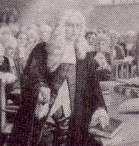
Andrew Hamilton |
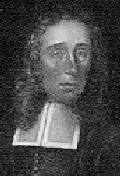
Increase Mather |
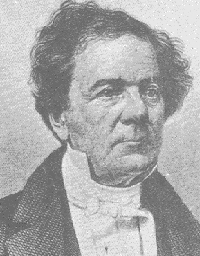
Lewis Tappan |

Abraham Lincoln |
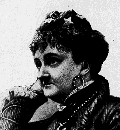
Myra Bradwell |

Susan Anthony |

Hugh Thompson |
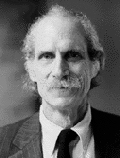
Anthony Amsterdam |

Andrew Hamilton |

Increase Mather |

Lewis Tappan |

Abraham Lincoln |

Myra Bradwell |

Susan Anthony |

Hugh Thompson |

Anthony Amsterdam |
| I see other heroes. I wish
there were time to praise them all. Heroes such as:
Andrew Hamilton, the courageous Philadelphia lawyer who, in 1735, defended the right of an immigrant printer named John Peter Zenger to criticize a corrupt colonial government in a case called by the author of our Constitution's Preamble, Gouvernor Morris, “the germ of American freedom, the morning star of that liberty which subsequently revolutionized America.” Increase Mather, who published "America's first tract on evidence"—a book that helped put an end to the tragic Salem Witchcraft trials. Mather wrote in his work, Cases of Conscience, it is “better that ten suspected witches should escape than one innocent person should be condemned." Roger Baldwin, John Quincy Adams, and most especially abolitionist Lewis Tappan, whose work freed the Africans of the slave ship Amistad. President Abraham Lincoln who--against almost all public opinion--commuted the death sentences of 265 Sioux Indians scheduled to hang in Minnesota in 1862 for their role in a conflict with white settlers on the northern frontier. Pioneering woman lawyer Myra Bradwell, who saved Mary Todd Lincoln from an undeserved confinement in a mental institution. Susan B. Anthony and Elizabeth Cady Stanton, who fought to extend the protections of the Constitution to women. Hugh Thompson, Ron Ridenhour, and Aubrey Daniel, the men who exposed the massacre of civilian men, women and children at My Lai village—and helped bring Lt. William Calley, the man most responsible for the killing, to justice….
|
Historian Dixon Wecter observed,
“Today seems always less heroic than yesterday.” The lawyer-heroes
of today may be only dimly perceived. Your heroes may not be my heroes.
A hero to a utilitarian may not always be one to someone who sees the moral
path as one of respect for rights and duties, or to a person for whom a
hero is one who leads a virtuous life. In the fullness of time, however,
I am confident that we will one day praise the heroic efforts of people
such as Anthony Amsterdam—who continues to lead the fight against the atavistic
practice of the death penalty—or the women and men of the Center on Wrongful
Convictions, who give their time and intelligence to freeing innocent people
wrongly imprisoned.
Conclusion What an honor roll of heroes there are! How few know their stories! In our law schools, we dissect cases and expound doctrine. We sharpen minds by narrowing them. C. S. Lewis wrote a wonderful slender book on education called The Abolition of Man. It should be required reading for anyone in the teaching profession. Lewis wrote: “The task of the modern educator is not to cut down jungles, but to irrigate deserts.” The poet e. e. cummings expressed a similar sentiment: “I’d rather teach one bird to sing than 10,000 stars how not to dance.” The right defense against false sentiments is to inculcate just sentiments. The right defense against injustices is to inculcate a strong sense of justice. Life is more than a stream of ambiguities. We should not try to “see through” everything. The point of seeing through something is to see something on the other side. As Lewis noted, “To see through all things is the same as not to see.” There is a point when the questions should end. We should not ask, “Why treat people justly? Why treat people equally? Why be truthful? Why not kill?” |
There is a reality beyond all
predicates. At the core of major religions and the other great traditions
is a set of common principles that should be accepted, not debated.
Do not kill, be of good faith and truthful, be merciful, be magnanimous,
be just, practice forgiveness, remember duties to children and posterity,
respect parents and to elders. These are the principles upon which civilization
depends; these are the principles that move law’s heroes.
We in the legal profession owe it to those who have gone before us and those who will come after to continue the search for law’s heroes. Let us win our struggle against forgetting. When we find heroes, we should shout their names, build statues in their likenesses, write books and produce documentary films in their honor, tell their stories in our law schools. In searching for heroes, we deepen our own lives. Many people today misunderstand freedom. They think that freedom is merely the ability to follow one’s own ever-changing wants. True freedom comes, paradoxically, from a sense of obligation, from an allegiance to higher values. True freedom enables us to choose what sort of people we will be. To be free is to be able to choose good over evil, beauty over ugliness, truth over ignorance. The search for heroes is a declaration of our freedom. When we find our heroes, we tell the world what we value most. All heroes in a sense are teachers. They teach us how to act. We may not become heroes ourselves, but we are better for having learned from those who are. In novelist May Sarton’s words, “One must think like a hero to behave like a merely decent human being.” Look for law’s heroes and let their heroism resonate in your professional and personal lives. |